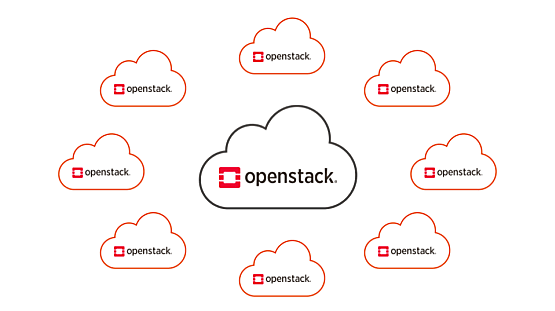Ilenia Zara
on 14 August 2023
How to ensure business continuity with IT infrastructure support
- Share on:
- X (formerly Twitter)
Picture this: you’re on a dream vacation with your family on a serene tropical island. The weather is perfect, the sea is mesmerising, and you’re ready to enjoy a relaxing day at the beach. Just as you’re about to unwind, your phone rings: it’s your manager calling to inform you that your IT infrastructure is down, and you need to fix it immediately.
If this scenario sounds all too familiar, you’re not alone. In today’s world, companies heavily rely on IT infrastructure, whether on-premise or in the cloud. Often, this infrastructure is built using open source software.
While some organisations attempt to manage everything in-house or seek help from upstream communities to save costs, they quickly realise that the open source landscape is vast, fragmented, and complex.
To overcome the challenges and ensure seamless business operations, it’s crucial to consider professional IT infrastructure support services. Let’s explore why scaling without support can be a daunting task:
- Open source skills are rare: based on the 10th Annual Open Source Report from the Linux Foundation there is a shortage of qualified open source talent: 93% of employers reported difficulty finding sufficient talent with open source skills, and nearly half (46%) of employers expect this trend will continue in the near future.
- Increasing occurrence of corner cases: As your infrastructure scales following your business growth, more and more corner cases are bound to surface. Having the exact knowledge you need to fix the issue in-house becomes less likely and, without the right expertise, addressing these issues may be time-consuming and prone to errors.
- Incidents management: For uninterrupted business continuity, you need engineers that are available round the clock. Especially with global businesses, IT issues can arise at any time, and having a team ready to assist you day and night is indispensable.
- Lessons Learned: Keeping track of all the lessons learned from past incidents can be a daunting task. Without proper documentation and support, it’s challenging to collect, organise and apply those learnings effectively.
How IT infrastructure support partners can help
So, what is the value that IT infrastructure support actually brings to your business?
- Experience: Professional enterprise support services offer a wide range of skills, covering most of the aspects of open source technologies used in IT infrastructure. Their teams have built in-depth collective knowledge through years of troubleshooting and fixing infrastructure issues. Additionally, they rely on well-defined technical documentation to ensure comprehensive and quick support.
- Commitment: When you partner with an enterprise support service, their support engineers stay with you until the issue is resolved. Your success is their goal and their commitment ensures that your IT infrastructure gets back on track as quickly as possible.
- Reliability: With 24/7 availability and defined Service Level Agreements, you can rest assured that any incidents or outages will be managed in a timely manner. This reliability is vital for maintaining smooth operations without disruptions.
- Two goals in one: By opting for enterprise support, you not only ensure that your business operates smoothly but also contribute to the promotion and growth of open source software. With hundreds of enterprises in a wide variety of industries doing the same thing, you will benefit from more stable and better sustained open source software for your business.
Now that we’ve covered the overall benefits of working with a support partner, what should you consider when choosing one?
How to choose an IT infrastructure support partner
The partner you choose should naturally vary depending on the stack you’re using and the scope of services you need. As a best practice, however, look for partners that offer:
- A straightforward support subscription: Choose a support service that offers a simple subscription that provides access to the widest range of skills and operates 24/7 to meet your business needs effectively.
- Collaboration and knowledge sharing: Look for partners that can help you enhance your team’s skills and knowledge. Collaborating with experts will help you grow and overcome future challenges confidently.
Canonical support
At Canonical, we believe in the role of open source software in driving innovation and progress. Our global team of experts is dedicated to contributing to open source and continuously improving it. By partnering with Canonical for your IT infrastructure support, you can count on reliable and efficient assistance, ensuring your business stays resilient and agile.
Don’t let IT challenges hinder your growth or stress you out while you’re on holiday. With our team, you can gain confidence in your IT infrastructure and rely on experts every step of the way.
Join our webinar on 20 September, 2023 to learn more about how we can help you ensure business continuity for your IT infrastructure with our support services.
Or contact us now for more information.
Suggested reading:
Security maintenance vs Support: what’s the difference?



